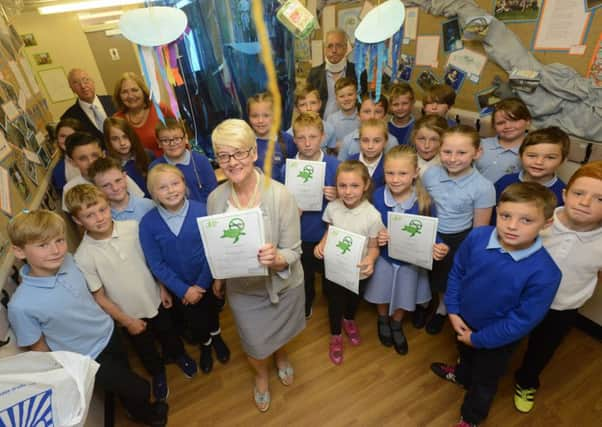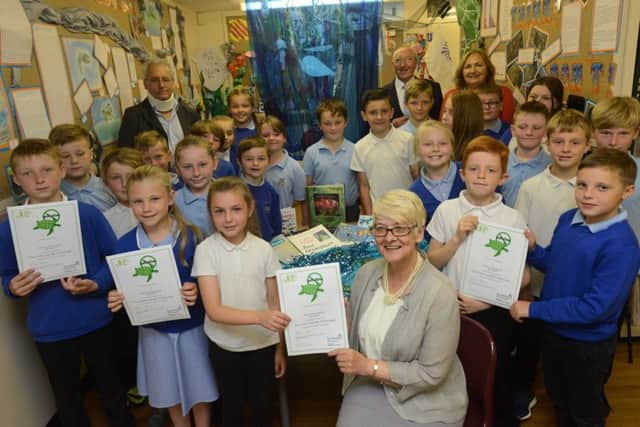Natural history group praises schoolchildren's pollution work


Hetton Local and Natural History Society (HLNHS) recently carried out a three-month project ‘Pollution-from Me to Sea’, funded through a grant from Sunderland City Council, in which five primary schools participated.
The aims of the project were: to provide expert tuition, with both practical field and class studies on aspects of pollution sources, causes and effects, from the point of their local areas to the world’s oceans via local watercourses, streams and rivers through to the coastline, shores and North Sea, joining that of many other countries, which led to global oceanic pollution.


Advertisement
Hide AdAdvertisement
Hide AdIt also aimed at accepting the individual and personal responsibility the public all have in affecting a reduction of pollution, especially where litter and plastics were concerned.
A total of 164 pupils participated, all Year 4 students, from Burnside Academy Primary School, Easington Lane Primary School, Hetton Lyons Primary School, Hetton Primary School and Eppleton Academy Primary School.
Activities ranged through a series of visual displays and discussions, led by HLNHS, emphasising the negative impacts, from pollution sources, on marine life and habitat in the North Sea, the Sargasso Sea and the Pacific Ocean.
This was followed by visits to the Dove Marine Laboratory in North Shields and a tour of the Blue Reef Aquarium in Whitley Bay, where marine experts tutored and allowed pupils to handle a number of marine species at risk from pollution sources.


Advertisement
Hide AdAdvertisement
Hide AdEach class then created a ‘project-end’ display, to showcase their findings, own research, and discoveries from the tuition provide.
The displays were judged to find the best two, but due to the high standard of merit of all displays, the judges awarded school vouchers to everyone, certificates were also given to each individual participating pupil and to the school itself.
HLNHS members Pat Robson said: “This project certainly opened the minds and eyes of every participating child, to the negative impacts on our world oceans and the prospects for our own food chain in the near future, from a plastic bottle, bottle top, crisp packet or carrier bag, dropped on the ground in our towns, the study research and information given by experts shocked even some of the teaching staff themselves.
“As the pupils began to conduct further research themselves, they could not believe the extent of the negative impact to our streams, rivers, seas and oceans from plastics alone, and how even a sweet wrapper or carrier bag, in the water, can look like a fish to a predator, or food to a turtle.
Advertisement
Hide AdAdvertisement
Hide Ad“This project was a fresh approach in attempting to redress littering habits, to highlight the cause and effect scenario and to instil ways of reducing our carbon footprint for a better future.
“By giving the children the opportunity to physically handle and associate with living marine species, then discovering them themselves on local beaches, the lesson really hit home.
“Pupils began to discuss personal changes they could make and asked if they could do further studies on the same topic in the next school year.”